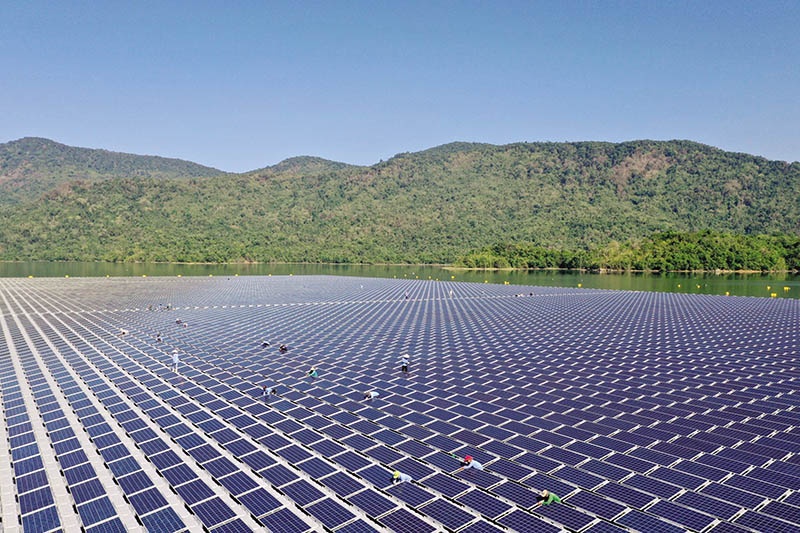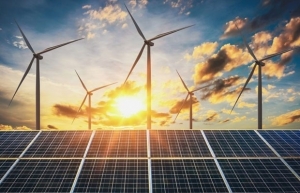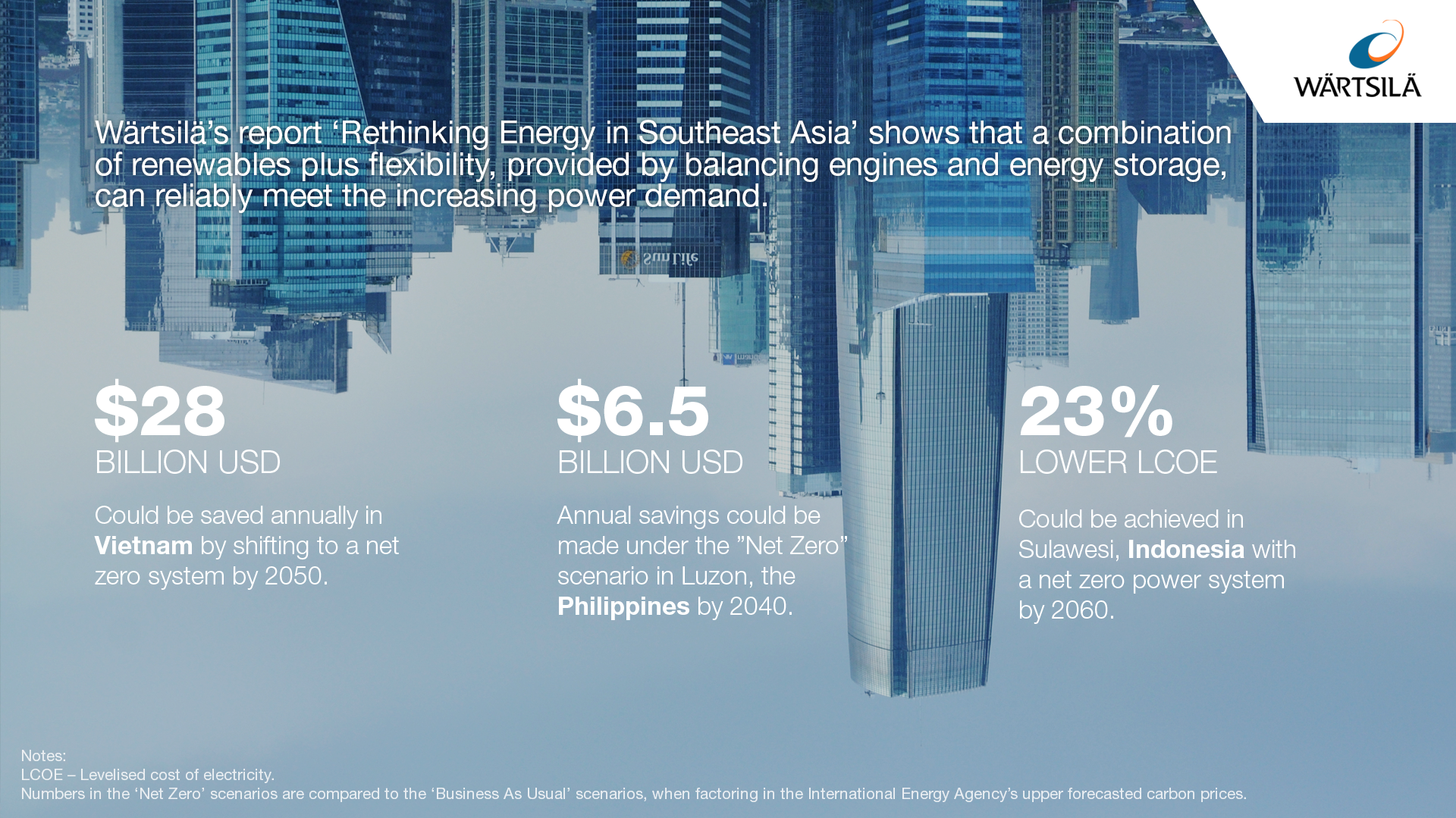Proposals to promote Vietnam's energy transition
Experts pointed out four challenges facing Vietnam's energy sector, including ensuring the security of supply, reasonable and competitive prices, and sustainability, while also mitigating the environmental challenges.
The obstacles in terms of power supply security are the lack of domestic production, many large-scale power plants falling behind schedule, and increasing dependence on imported energy sources over the coming period – especially regarding coal and liquefied natural gas (LNG).
 |
| Vietnam has ample potential for renewable energy development, particularly wind and solar power |
There is an argument that the difficulties in terms of pricing come from the fact that the local energy market has yet to develop synchronously, with energy price policies still being inadequate and not really consistent with market mechanisms.
According to the recent report Vietnam’s Energy Transformation: Opportunities and Challenges published by the German Corporation for International Cooperation, Vietnam's strong economic growth is based on an energy-intensive economy.
| Vietnam's power industry continues to face great challenges in developing new power sources. |
In particular, Vietnam's low energy elasticity coefficient (EEC) – 1.67 for 2016-2020 – highlights low energy-use efficiency. Meanwhile, the EEC of most developed countries, such as members of G7, G20, and OECD, is often lower than 1.
Experts argue that the demand for energy in general, and electricity in particular, will continue surging, causing challenges for the energy transition in the country.
Vietnam is a major importer of oil and coal and is expected to become a major importer of LNG, increasing its dependence on the international energy market. This could affect Vietnam's energy security and impact the environment in the long term.
The national power industry also continues to face great challenges in developing new power sources.
The construction progress of some thermal power projects under the revised Power Plan VII has been significantly slower than hoped, falling behind schedule for several years. Therefore, ensuring power supply security is considered one of the top priorities for the Vietnamese government in the short and medium term – especially over the next five years.
In addition, Vietnam's current legal framework has yet to be fully developed to support LNG imports. Therefore, it is necessary to add detailed regulations, especially for the principles of pass-through and take-or-pay commitments in power purchase agreements in the gas power value chain.
In order to enhance energy security and achieve carbon neutrality by 2050, demands to develop appropriate mechanisms and policies to accelerate investment in infrastructure associated with the transition to renewable energy have been raised.
Another suggestion for renewable energy development is to continue the Feed-in Tariffs scheme for small- and medium-scale projects under 1MW to support the renewable energy sector and ensure the diversity of participants.
Meanwhile, large-scale renewable energy projects over 10MW have been proposed, helping to increase the attraction for international investors.
Experts also emphasised that it is necessary to pay more attention to the assessment, monitoring, supervision, and strengthening of related sanctions to reduce investment into polluting factories and high-carbon-emission infrastructure, potentially closing them and researching solutions for alternatives.
 | Vietnam invests in 10 energy technologies Vietnam will invest in 10 energy technologies in the 2021-2030 period with a view to ensuring energy security for the country’s socio-economic development, as part of the “Research, Application and Development of Energy Technologies” programme. |
 | Vietnam's smooth transition to net zero by 2050 Wärtsilä has revealed that renewable-based power systems, backed by grid balancing engines and energy storage, can enable Vietnam to reach net zero by mid-century whilst cutting the levelled cost of electricity (LCOE) by 20 per cent when taking into account future carbon taxes. |
What the stars mean:
★ Poor ★ ★ Promising ★★★ Good ★★★★ Very good ★★★★★ Exceptional
Related Contents
Latest News
More News
- Efficient technology solutions key factors in energy transition (September 25, 2024 | 09:00)
- Sao Do Group gears towards energy savings (December 07, 2023 | 12:01)
- Vice President Vo Thi Anh Xuan visits Copenhagen Infrastructure Partners headquarters (November 23, 2023 | 10:37)
- A wind turbine tower collapses in China (November 20, 2023 | 19:36)
- Vietnam has massive potential for offshore wind energy (March 17, 2023 | 16:29)
- Rooftop solar event entices EPC contractors and investment funds (March 09, 2023 | 07:50)
- GreenYellow acquires 49.5MWp solar farm of French IPP Qair in Vietnam (November 25, 2022 | 08:00)
- Eaton contributes to Vietnam’s low-carbon economy (November 20, 2022 | 19:00)
- How intelligent lights make cities smarter, safer and greener (November 04, 2022 | 09:00)
- ACCV’s first battery storage project with Motul in Vietnam (October 10, 2022 | 12:23)

 Tag:
Tag:

























 Mobile Version
Mobile Version